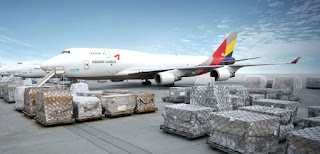Pharmaceuticals Logistics USA
Pharmaceuticals Logistics USA involves the storage, transportation, and distribution of pharmaceutical products across the supply chain. Given the sensitive nature of pharmaceuticals, logistics in this industry must adhere to strict regulations to ensure the integrity and safety of the products. Here are key aspects of pharmaceutical logistics in the USA:
Regulatory Compliance: The pharmaceutical industry is heavily regulated. Logistics providers must comply with regulations set by the Food and Drug Administration (FDA) and other relevant authorities. This includes adherence to Good Distribution Practices (GDP) and maintaining proper storage conditions for temperature-sensitive products.
Cold Chain Logistics: Many pharmaceutical products, such as vaccines and biologics, require specific temperature conditions to maintain their efficacy. Cold chain logistics, which involves temperature-controlled storage and transportation, is crucial to prevent spoilage or degradation of these products.
Distribution Centers: Pharmaceutical companies often have distribution centers strategically located across the country to facilitate efficient and timely delivery of products. These centers may be equipped with state-of-the-art technology for inventory management and temperature monitoring.
Specialized Transport: Pharmaceuticals may be transported using specialized vehicles equipped with temperature control systems. This is particularly important for products that require refrigeration or freezing during transit.
Track and Trace Systems: Advanced track and trace systems are implemented to monitor the movement of pharmaceutical products throughout the supply chain. This enhances visibility, helps prevent counterfeiting, and ensures the timely delivery of products.
Security Measures: Given the value and sensitivity of pharmaceutical products, security measures are paramount. This includes secure storage facilities, tamper-evident packaging, and monitoring systems to prevent theft or unauthorized access.
Customs and Import/Export Compliance: For pharmaceutical products that are imported or exported, logistics providers must comply with customs regulations. This includes proper documentation, adherence to import/export restrictions, and compliance with international shipping standards.
Reverse Logistics: Handling returns, recalls, or expired products is a critical aspect of pharmaceutical logistics. Reverse logistics processes must be in place to manage the return and disposal of pharmaceutical products in compliance with regulations.
Technology Integration: The use of advanced technologies, such as RFID (Radio-Frequency Identification) and IoT (Internet of Things), is becoming increasingly common in pharmaceutical logistics. These technologies enhance real-time monitoring, traceability, and overall supply chain efficiency.
Collaboration with 3PL Providers: Many pharmaceutical companies partner with third-party logistics (3PL) providers that specialize in pharmaceutical logistics. These providers often have expertise in navigating the regulatory landscape and maintaining the necessary infrastructure for compliant logistics operations.
It's important for pharmaceutical companies to work closely with logistics partners and stay abreast of industry advancements and regulatory changes to ensure the safe and efficient distribution of their products in the USA.


.jpg)
.jpg)
Comments
Post a Comment